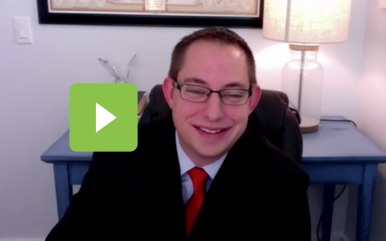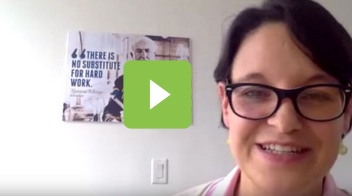Vol. 17 No. 34
PROFESSIONALISM PREVAILS. Teachers are growing increasingly dissatisfied having to join a group that doesn’t always align with their personal beliefs, particularly when it comes to the workplace and reform, according to the Association of American Educators’ (AAE) latest survey about the workplace and pension policies. Representing views from teachers in every state, the survey finds that 70 percent of AAE members support Worker’s Choice, a proposed policy that would allow a teacher to opt-out of the bargaining agreement in their district and negotiate their own salary and benefits. While traditional teacher unions would have the public believe otherwise, it’s clear that teachers are growing in their support for more commonsense policies that allow for greater professionalism when it comes to their ever-so-important jobs of educating our nation’s future leaders.
CHARM CITY NEEDS CHOICE. What’s the one aspect of the urban condition that has changed little in Baltimore but has the potential to transform a person’s life and livelihood and change communities?, asks CER Board Chair Frank A. Bonsal III in the Baltimore Sun. Answer: Education. Of all Maryland’s 24 school districts, Baltimore City spends at or near the top per student, yet just 16 percent of 8th graders and 14 percent of 4th graders are proficient in reading. Charter schools are helping, but improving Maryland’s charter school law could help them do more. Newswire readers remember Maryland’s Governor Hogan tried to get legislation passed that would improve the state’s charter school law, but it was ultimately gutted and passed by the legislature. Conflicted adults must recognize the system we’ve created for our kids is a hard-wired infrastructure born from decades of political wranglings, far from the innovative and pathbreaking mindset of the visionaries like the Calvert family and others who helped paved the way for Maryland in the 1630s. To bring immediate progress when it comes to educational equity, it’s time to create the conditions that allow for ALL Marylanders to have choices among excellent schools; school choice must be part of Maryland’s future.
CHOICE AND ACCOUNTABILITY. Parents want both when it comes to their child’s education, so naturally it’s what we hope to hear when it comes to candidate hopefuls’ education platforms. Presidential candidate Jeb Bush’s views on education came under the microscope in the Tampa Bay Times, with the critique that the former Florida Governor is for choice, but not when it comes to testing. CER senior fellow and president emeritus Jeanne Allen is quick to point out, however, that the two are not contradictory. In fact, the status-quo, agenda-driven PDK/Gallup poll results indicate that for parents who have historically been underserved by the traditional school system, both choices and standards are important, and testing is an important indicator for assessing how well their children and schools are doing. Seventy-five percent of black respondents and 65 percent of Hispanic respondents would not excuse their child from testing, compared to 44 percent of white PDK/Gallup poll respondents. Bottom line is that choice and accountability are vital, and the two go hand in hand.
SHOULDN’T TAKE A HURRICANE… to create all-choice districts, CER President Kara Kerwin told the Washington Examiner last week as the nation remembered the tenth anniversary of Hurricane Katrina. As the nation reflects on how much progress New Orleans has made in education, some fail to give credit where credit is due, and that’s to school choice and the unsung heroes that went above and beyond the red tape to get kids learning as soon as possible after the storm. Kerwin recalls the tremendous efforts of these people after Katrina to rethink, reshape, and reform business as usual, and the tremendous resistance that was met even then, as CER put pressure on the on the U.S. Department of Education, state governments and municipalities to send relief and revamp policies to help kids. But persistence paid off, and helped improve education outcomes in New Orleans. It’s time to take these lessons and apply them across the country; “Families want the freedom to choose, and they surely don’t need a hurricane to make it happen. It’s time…to answer their call.”
NASHVILLE UPDATE. Three charter school operators have officially filed appeals in Music City, with two from KIPP, one from Rocketship Education, and one from The International Academy of Excellence. What happens next is the State Board of Education will review the schools’ applications, schedule public hearings and make a decision within 60 days. Currently, the board is scheduled to make decisions on applications during their meeting on October 22. If you remember from last week’s Newswire, the State Board’s decision is now binding thanks to an update to the law in 2014. We’re certain these opportunities to provide excellent education options to Nashville families will prevail, and stand with operators who won’t stop in their mission to make sure every child has a choice. KIPP Nashville Executive Director Randy Dowell hits the nail on the head, saying, “Until every kid has multiple school choices that are great, we feel the need to keep working and to keep going with this process.”













Answering the call…
The nation will never forget watching the levees break, the fear and pain on the faces of the people trapped, the destruction, countless lives lost too soon. Ten years ago to the date, a storm, an act of God, broke down almost every system and structure that was supposed to keep the great people of New Orleans safe.
There is no question that those systems and structures were severely flawed and broken before the storm. But one in particular – the traditional public schools – literally had tens of thousands of students falling through the cracks. Before the storm, every effort to bring substantive reform to education was fought and defeated by special interests. At the time, CER was intricately involved with the dozen or so folks locally trying to bring about substantive change.
When news of Hurricane Katrina hit, we were all glued to our televisions in horror, outraged that Americans were suffering because of it. There’s a lot of speculation as to the reasons why – flawed government, brutally failed efforts to evacuate – the list goes on.
On August 29, 2005 I made a phone call. What about the hundreds of families of the dozen or so charter schools we personally knew and worked with – were they safe? Dr. James (Jim) Geiser, the former director of Louisiana Charter School Association, now Senior Program Consultant at University of Georgia, answered the call!
Jim and several charter leaders and families made it to Baton Rouge. If my memory serves me right, a charter operator in Louisiana’s state capital gave them refuge.
I’ll never forget Jim’s words, “It’s all gone… You can’t even imagine the destruction. We’re desperately trying to find students and their families to make sure they are safe.”
I could hear the pain in his voice while he was multitasking to figure out accommodations for those seeking a place to lay their heads that night.
It was the next statement out of Jim’s pained heart that very few know about, but set in motion the transformation and reformation of schooling in the Big Easy that so many celebrate today [paraphrased]:
“School has started, we have to do something. These children can’t wait, and we need to bring them a sense of stability… They’ll lose years of learning, our city can’t survive without our future… can CER help us get trailers, educators down here, or online?… Can the business community help?… I KNOW the charters can do this quickly but they’ll need cover/new laws… What about all the kids spread out across the country now?… What can we do to make sure they are getting a great education?”
Answering that call wasn’t easy, it took a village. Charter schools in California, Idaho, Pennsylvania, Florida, and countless of other states were offering any open seats they had to evacuated students. A Los Angeles school had ten spots open in 3 different grades, while in Florida, there were 1,500 seats available across 23 schools. Mike Feinberg, co-founder of KIPP, was fought with resistance to open a school in New Orleans before the storm. Post-storm, they opened KIPP New Orleans West College Prep in Houston for all the displaced families.
Two amazing and unsung heros, Tom and Carolyn Crosby, got to work right away. Despite extreme obstacles – not because of Katrina but because of the laws in place -their school, the International School of Louisiana, was the first to open on October 31, just 63 days after the storm, and four weeks before any traditional public school.
At CER we answered thousands of calls from families displaced from the storm, and found them opportunities to not let their children’s thirst for knowledge and learning be stunted as the adults and systems tried to figure it out. CER also became relentless in leveraging its network of reformers and leaders to not only bring some sense of stability back to New Orleans families, but rethink, reshape and reform business as usual.
CER recognized its policy acumen could help, so we put pressure on the U.S. Department of Education, state governments and municipalities to send relief. Thousands of pages of emails and information in our archives document efforts to allow the McKinny-Vento Homeless Assistance Act to apply to all displaced children wherever they ended up, and weigh in substantially to create the Recovery School District. The resistance, even among would-be friends was astounding.
The confabs of organizations operating today supporting school choice, opening or funding schools, would never have been possible without the dedicated, yet controversial, work of people like Jim Geiser and The Crosby’s supported by CER to get policy in place.
Ten years later I can rest a bit easier knowing 100 percent that parent choice and dedicated leaders transformed New Orleans from the ground up. But that still doesn’t mean I’ll sleep well. High school graduation rates have jumped by ten percent, and college entry rates by 14, but there’s still so much work to do and so much to defend. There’s been a lot of investment of time, money, and policy work in New Orleans since the storm to give parents a voice and a choice. There have also been a lot of attempts to break it down.
Families want the freedom to choose, and they surely don’t need a hurricane to make it happen. It’s time we learn from New Orleans and answer their call all across our great country.
Kara Kerwin
President